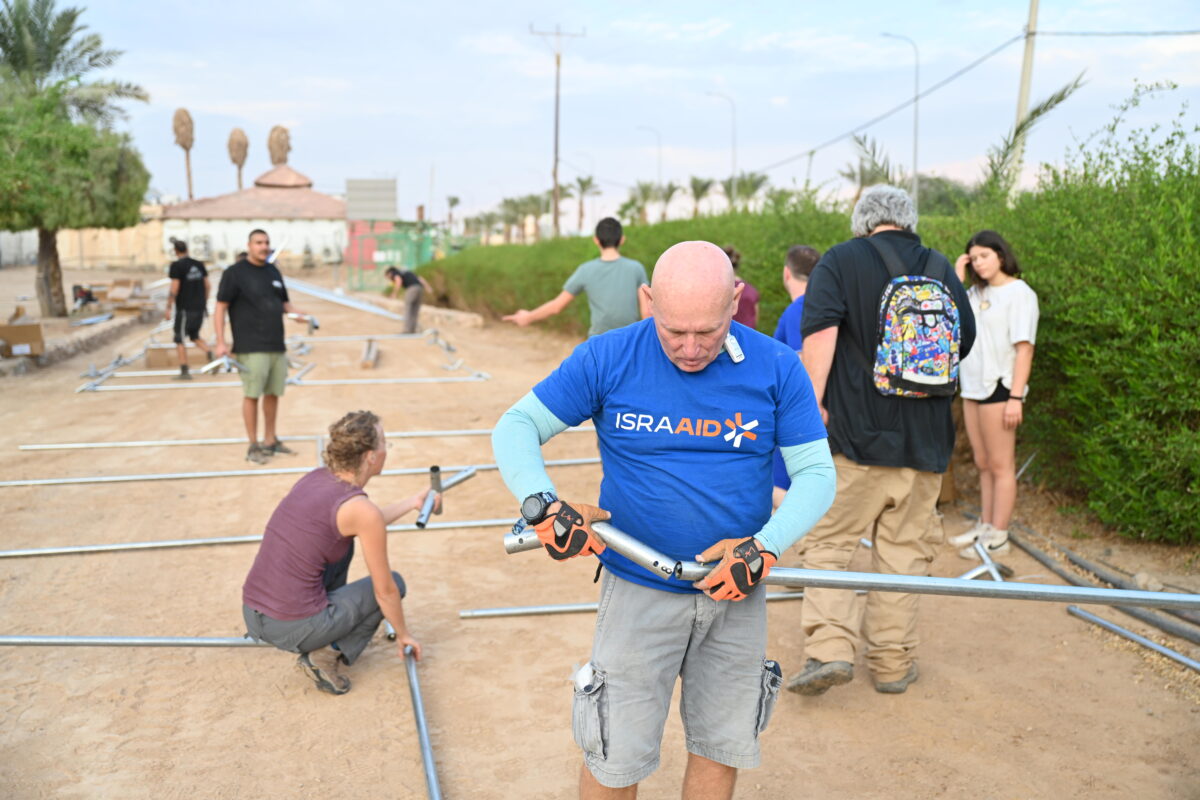IsraAID: Meeting the needs in Israel requires all of our humanitarian experience
Originally published in eJewish Philanthropy by Yotam Polizer, CEO of IsraAID

After the devastating attacks on Oct. 7, IsraAID, the humanitarian aid organization I lead, was faced with a huge decision. After 22 years of using Israeli humanitarian, technical and mental health expertise abroad, we decided for the first time to launch a large-scale response at home.
In the first days, we began setting up child and parent spaces in evacuation centers where families could access psychosocial support and psychological first aid in a communal setting. Child-friendly spaces are a hallmark of IsraAID’s programs across the world. They’re an essential tool for creating a protected space, under the guidance of mental health professionals, where children can regain a sense of agency, routine and normalcy as they process trauma.
We also established art therapy spaces, many in the form of open studios that have traveled with communities as they moved between or left evacuation centers. Another important challenge in Israel has been restoring access to education. IsraAID worked with partners and local authorities to establish field schools for evacuated communities in the first months of the war, because we know how much stability and support a school can bring.
Above all over the last two decades, we’ve learned that it takes time to rebuild resilience after an emergency. That’s why we commit to communities for as long as we are needed — often many years after the initial crisis. That long-term approach has also been at the core of our work in Israel. Our commitment helped us build trust and deep partnerships with communities — including the kibbutzim of Be’eri, Kissufim, Re’im, Kerem Shalom and others.
Our work in Israel has been a first for IsraAID in many ways; at the same time, it builds on our past and ongoing global missions. After decades of bringing Israeli expertise to communities in crisis, we found that all the experience we’ve gathered abroad was essential for us to be able to help at home. I have long believed that every disaster holds within it a chance to grow, build our personal and collective resilience and develop knowledge that can help others in the future. In this present crisis, I am grateful for everything I have learned from past emergencies, and hopeful that the difficult lessons we learn now will serve crisis-affected communities in the future.



